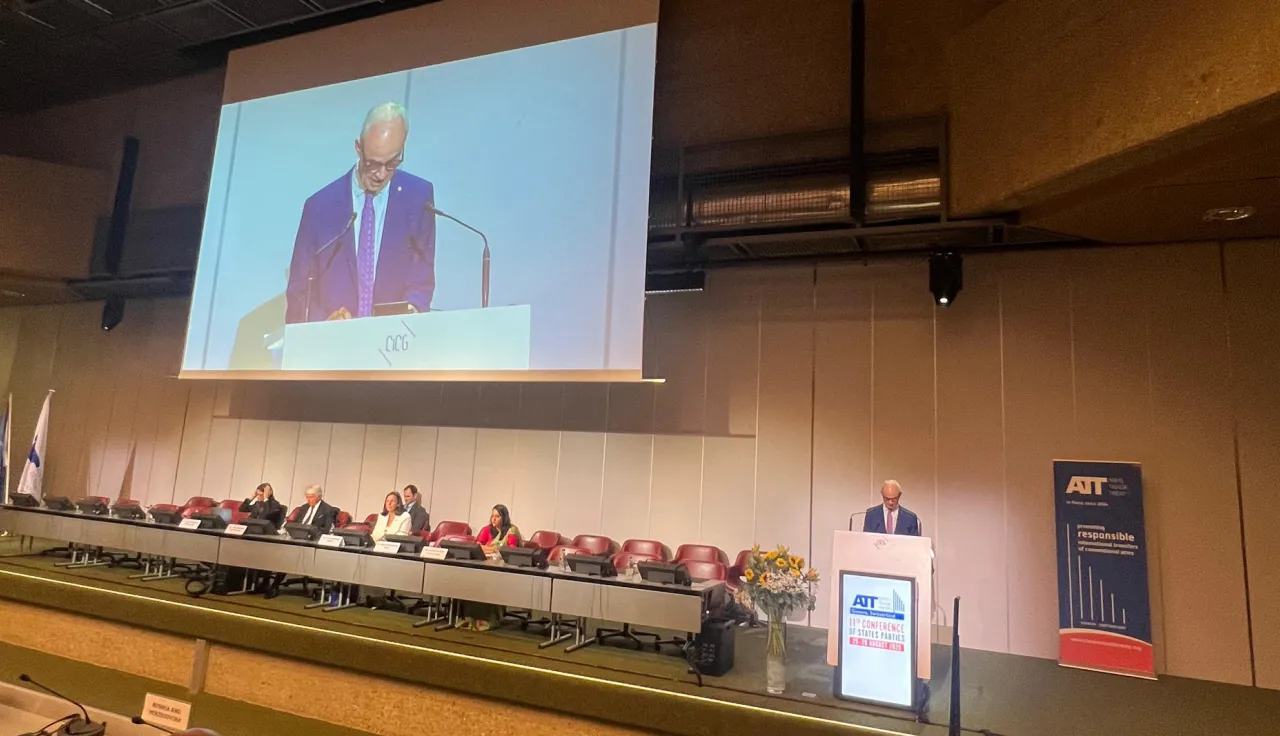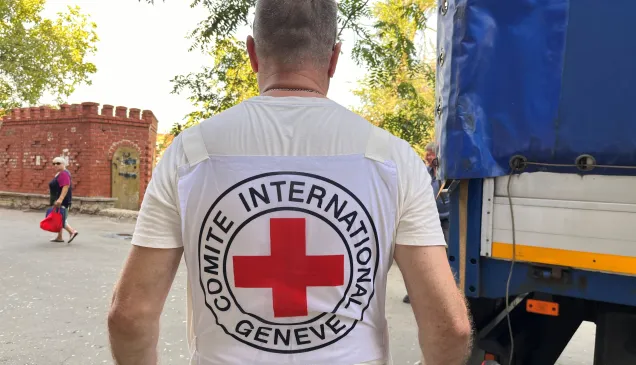Mr. President,
Excellencies, Ladies and Gentlemen,
Two weeks ago, on the 76th anniversary of the Geneva Conventions, the ICRC urged states to recommit to an effective protective framework: a framework that saves lives and preserves humanity in armed conflict; a framework that fosters a peace enabling environment.
This is more pressing than ever. Every day, my colleagues working on the frontlines witness the immense human suffering caused by ever more violent and frequent attacks against civilians and essential services. We also see an unacceptable rise in the number of humanitarian workers being hit. Such trends must be halted and reversed.
As we gather today in Geneva on the 11th Conference of state parties to the Arms Trade Treaty, let me stress that prohibiting arms transfers where the latter risk being misused for such nefarious purposes must be upheld.
With global arms sales on the rise in the context of heightened international tensions, it is an ever more pressing humanitarian imperative to promote responsible action in international arms trade. The influx of weapons exacts an unacceptable human toll among civilians and jeopardizes the prospects of lasting peace in contexts such as the Democratic Republic of Congo, Haiti, Israel and the Occupied Territories, Myanmar, the Sahel or Somalia, to mention but a few.
Faithfully implemented, the Arms Trade Treaty plays a key part in States’ efforts and responsibility to prevent serious violations of international humanitarian law and human rights law.
As States Parties to the ATT, you showed leadership in adhering to the first global treaty to regulate international trade in conventional arms. We urge you today to demonstrate renewed commitment to the very humanitarian purpose of the ATT, and make three calls:
First, as part of your obligations, ensure that decisions on arms transfers duly take humanitarian concerns into consideration.
This means applying utmost diligence in assessing risks associated with arms transfers, and taking timely measures to offset such risks.
Where there is a clear risk that arms would be used to commit IHL violations, states must refrain from transferring them. Respect for international humanitarian law must be considered at all levels of arms transfer decision-making, and must not be trumped by economic or political considerations.
Exporting States should furthermore use their influence to foster respect for IHL by the arms recipient.
Second, the Treaty’s humanitarian aspirations must be operationalized to yield tangible impact on the ground.
The humanitarian purpose of the Treaty is evident. It recognizes the human cost of arms availability and spells out the aim of contributing to international and regional peace and security. This requires continued focus on effective treaty implementation, interagency cooperation, and engagement with industries.
This Conference should mark the start of a renewed focus on practical measures in ATT implementation, including the establishment and strengthening of national control systems, greater controls on arms flows, and responsible arms transfer practices.
Thirdly, the international community must restore a vision of disarmament and arms control as a pathway toward sustainable peace and security.
We have recently seen a few worrying and highly regrettable withdrawals of states from humanitarian disarmament treaties. Such treaties are precisely meant to apply in wartime. It is more urgent than ever to uphold and strengthen the norms that safeguard humanity in armed conflict.
In this context, we welcome Colombia’s recent accession to the Arms Trade Treaty and encourage all States that have not yet done so, to also adhere to it.
Excellencies, ladies and gentlemen,
As part of the Global Initiative on international humanitarian law launched last September, the ICRC – together with the co-chairs of the workstream on IHL and peace – will hold a consultation on disarmament in early 2026. The aim will be to examine how disarmament and arms control can serve as confidence-building measures that curb proliferation, reinforce humanitarian protections, and support a pathway to lasting peace and stability. We invite all ATT States Parties and observers to join and share lessons from implementing the Arms Trade Treaty.
To conclude, the ICRC remains deeply committed to supporting States Parties in the application of the ATT as well as all efforts to advance its universalization and faithful implementation.
Thank you.




